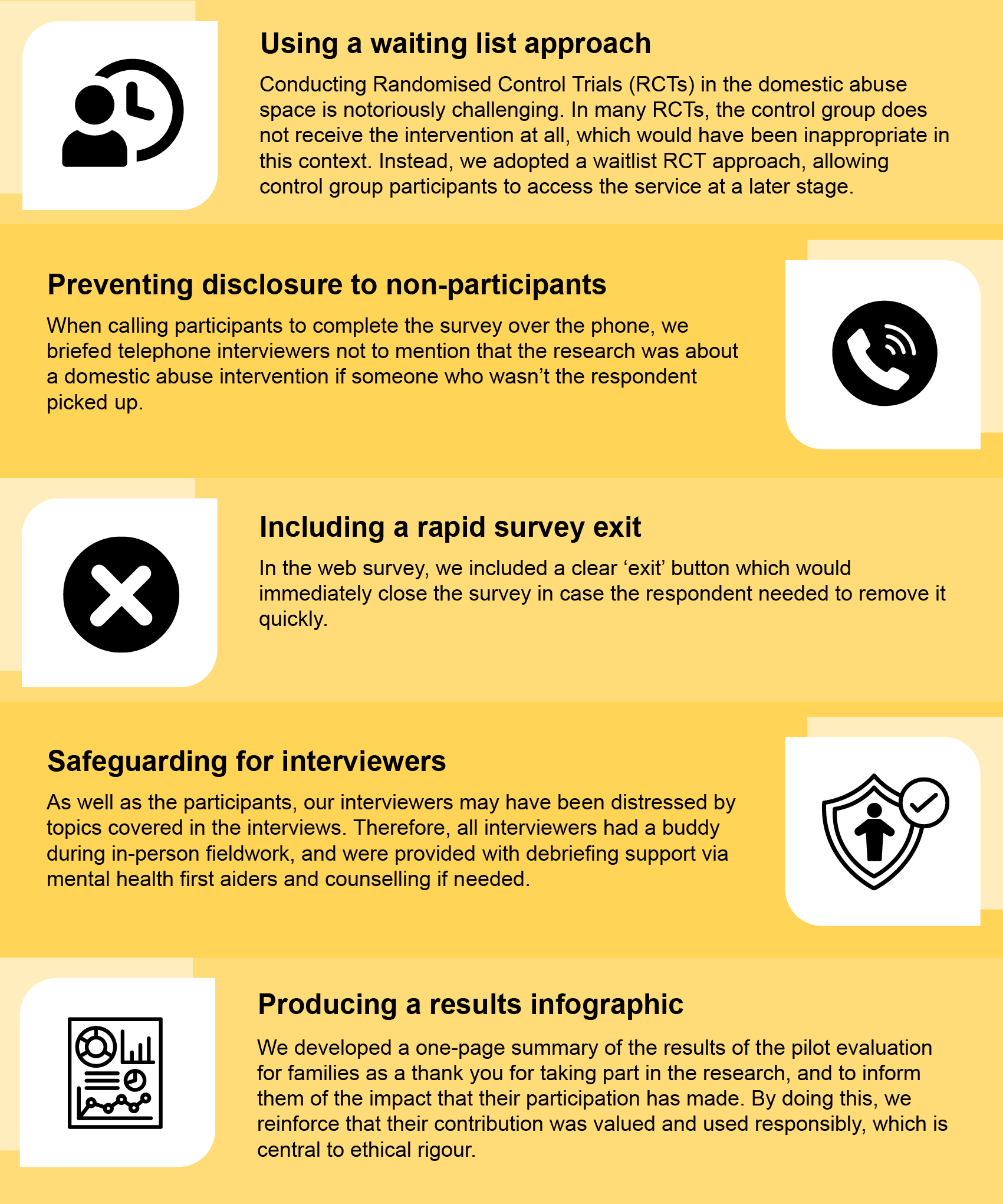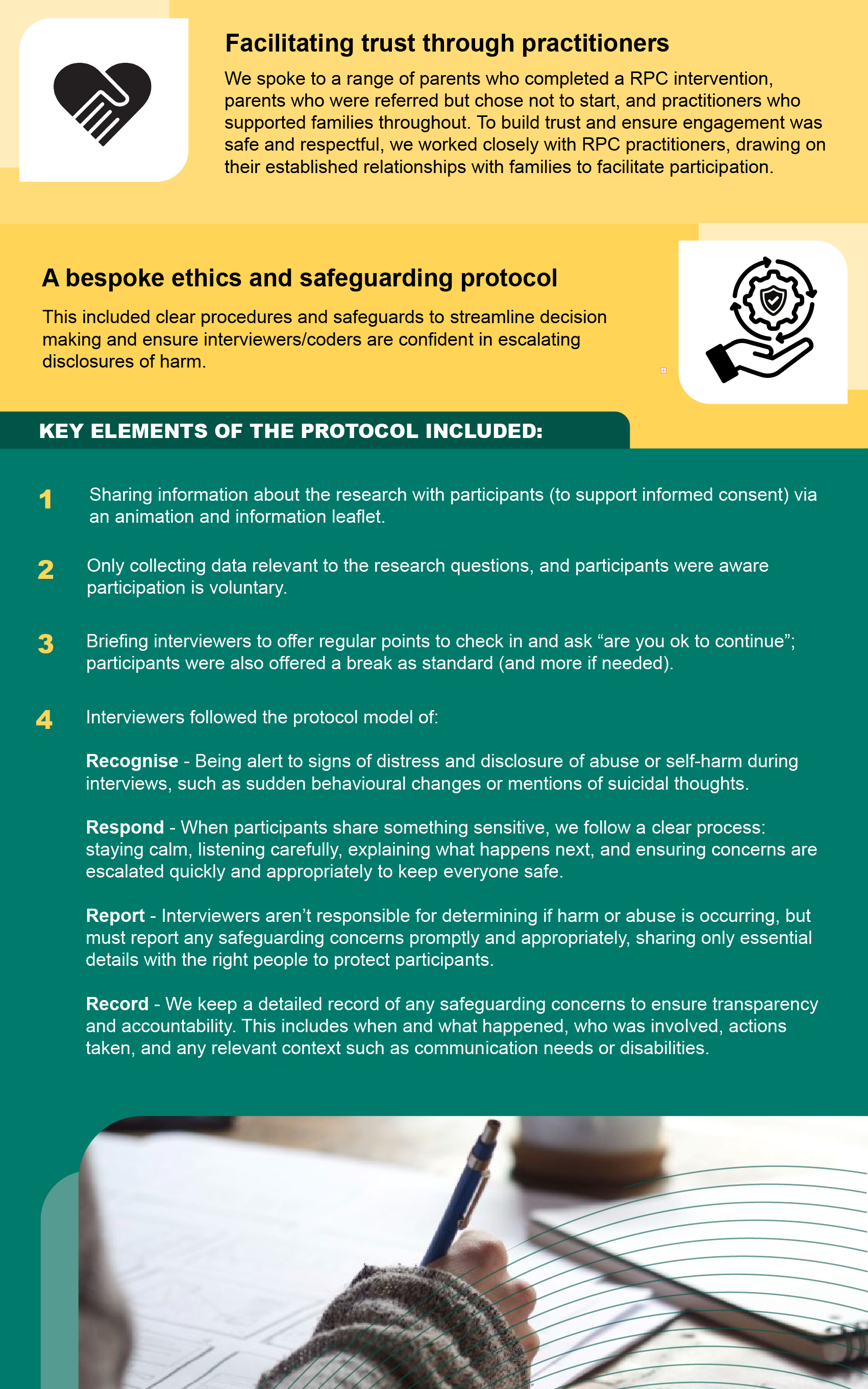
Safeguarding and ethical rigour is about anticipating risk, responding appropriately, and embedding procedures that protect people involved in research or evaluation. Safeguarding focuses on immediate safety mechanisms, whilst ethical rigour ensures comprehensive protection is built into every stage of the research process. Both combined lay the foundations for trust, creating environments in which people feel safe to share their experiences.
For this blog we’ll examine what safeguarding and ethical rigour really means in practice; looking at how our researchers protect identities and data, minimise harm, and navigate sensitive situations with empathy and professionalism.
Confidentiality and anonymity
Ensuring participant confidentiality is central to ethical research practice. We take a proactive approach to data protection, using secure systems and anonymisation to safeguard personal information. Informed consent is closely tied to this, as it ensures participants understand how their data will be used and gives them control over their involvement.
Minimising harm
Our researchers are trained to recognise and respond to signs of distress, particularly when engaging with people who may have experienced trauma, marginalisation, or systemic disadvantage.
Building trauma-informed flexibility into our methods is also key, as it allows participants to take breaks, not answer anything they aren’t comfortable with, or withdraw entirely without needing to explain. Where appropriate, we offer or signpost to support services, as well as ensuring researchers have clear escalation protocols.
Throughout, emotional safety is always prioritised and we acknowledge the potential impact of participating in the research process itself.
Safety and security in our research
Safeguarding and ethical rigour is key to how we work with seldom heard groups, and can take many forms depending on the context. Here’s how we applied them in two different scenarios: a pilot evaluation of a programme for domestic abuse survivors and a family conflict support intervention.
Ensuring victim-survivors are secure
Bounce Back 4 Kids (BB4K)
BB4K is a therapeutically informed programme supporting parents and children impacted by domestic abuse, which is typically multifaceted, ongoing, and accompanied by other life challenges. We carried out a pilot evaluation of the programme, by comparing parent-reported outcomes on parent-child relationships, child behaviour, and parent self-efficacy. Steps taken to ensure safeguarding and ethical practice included:

Family support services and a tailored framework
Reducing Parental Conflict (RPC)
RPC helps local authorities embed support for parents whose frequent, intense, and poorly resolved conflict can harm children’s mental health and life chances. Our work evaluated how local authorities have utilised RPC funding from Department of Work and Pensions, the challenges faced, as well as best practices identified from 2022-2025.
We safeguarded our participants through:

Coming up next
Safeguarding and ethical rigour ensures every participant has the support they need to take part with confidence. It also means equipping our researchers with the tools, training, and emotional support they need to carry out sensitive work without compromising their own wellbeing.
Next, we’ll explore our expertise in co-design and co-production with those with lived experience, and how it’s shaped our approach. By involving marginalised groups directly in the process, we ensure that their perspectives inform decision-making, improving the relevance and effectiveness of the tools and outputs we develop.
You can also view our previous blog, which summarised the six principles we look to follow and apply when conducting research with people experiencing challenging circumstances.